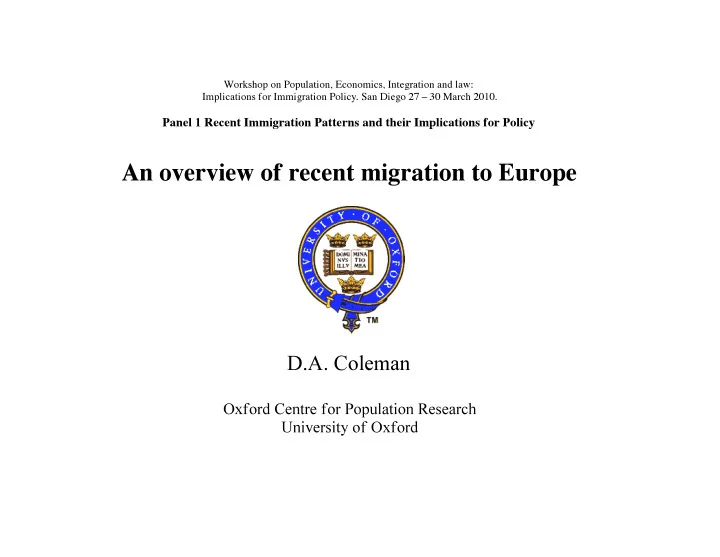

Topics Patterns of recent migration Flows for work and other purposes The future of migration Effects of policy Effects on population
Europe – more immigrants than the US
Divergent trends
Unplanned immigration – Spain and Italy
France: family migration predominates over labour migration
France 2005: Gross inflow by reason for admission (percent).
Foreign immigrants to the EU according to geographical region of citizenship. Source: Eurostat 2008
Sweden: Immigration and emigration 1960-2008 and forecast 2009-2060. Source: Statistics Sweden
Immigration can go down as well as up. Germany 1954 – 2007. Source: Statistisches Bundesamt
Controlling marriage migration – Denmark 1999 - 2005
Controlling marriage migration: immigrant or resident origin of partners of Turks marrying in the Netherlands, 2001-2008. Source: Statistics Netherlands.
Effect on population – old and new members of the EU. Source: Sobotka 2010
Effect of projected level of migration upon population sizes of selected countries, 2008 - 2050. (Source: Eurostat 2008)
Comparison of net immigration to births and natural increase, selected European countries.
Projected growth of minority populations of immigrant origin in selected European countries and USA.
Making the best out of low fertility and high migration. Source: Dalla Zuanna.
Conclusions Immigration to Europe high but variable Divergent patterns; policy important. Predominance of non-labour migration but competition for high skilled migrants. Popular opposition forcing some policy changes – e.g. marriage migration Recent downturn, of uncertain duration. Migration paramount in demographic dynamics Substantial ethnic change if recent patterns persist.
Feedback between (foreign) immigration and (native) emigration?
Declining population - alternative responses and feedbacks. Blue arrows –positive effect. Red arrows –negative effect.
Recommend
More recommend